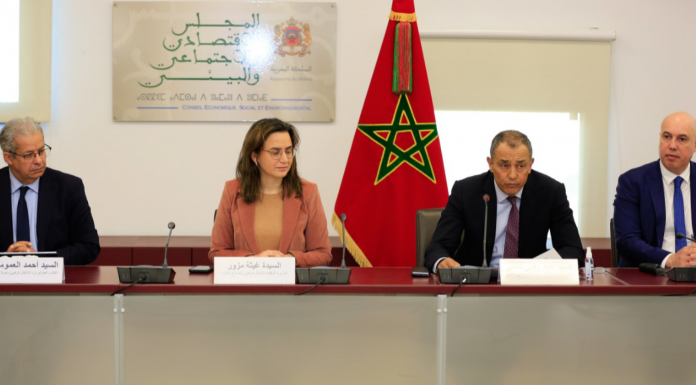Morocco's digital transformation began a dozen years ago. Since then, the government, aware of the impact of digital technology on Moroccan society and economy, has launched several strategies to accelerate its development. Artificial Intelligence has an essential role to play and the president of the Economic, Social and Environmental Council (EESC), Ahmed Réda Chami, called on January 19 in Rabat for the establishment of a national policy dedicated to artificial intelligence (AI) by giving it priority in the digital transformation. Morocco's ambition is to become one of the major digital players in Africa. As early as 2005, it implemented the "e-Morocco 2010" strategy, followed by the "Digital Morocco 2013" plan, "Digital Morocco 2020" and "Horizon 2025". In 2020, it was ranked fourth in the "Digital Risers" (ranking of countries in terms of digital competitiveness) of the MENA region (North Africa and Middle East). The internet and mobile penetration rate has been increased by the pandemic thanks to telecommuting and e-commerce but has aggravated the social divide. On the other hand, the objectives set by the different plans could not be reached.
The importance of digitalization
It is in video that the President of the Economic, Social and Environmental Council (EESC), Ahmed Réda Chami, recalled the importance of digital as an essential pillar of strategic transformation, in view of its cross-cutting impact on governance, transparency, the proper functioning of public services, the inclusion of the population, as well as on the economic dynamics. He stated:"Digitalization, now unavoidable around the world, has become a driver of the globalization of exchanges of all kinds, and even a decisive lever to succeed in any societal and economic transformation in a country."He then added:
"Aware of the importance of this sector creating major economic and social opportunities, our country has implemented, for years, several strategies and programs to accelerate its digital transformation such as "Digital Morocco 2013" and "Digital Morocco 2020". It has also equipped itself with a legal arsenal and specialized bodies in the field, including the Digital Development Agency (ADD), the National Commission for the Control of Personal Data Protection (CNDP) and the General Directorate for Information Systems Security (DGSSI).
A disappointing result
The various strategies have brought good telecom coverage and widespread access to mobile telephony. They have enabled the digitization of the administration and certain sectors (digital banking services, online payment of taxes, dematerialization of customs procedures, e-parapheurs, the "TELMIDTICE" platform for distance learning, the digital order desk, the implementation of the Chikaya platform, the remote court during confinement, etc.).However, the objectives for a successful digital transformation have not been achieved and the digital divide has not been bridged, it has even been amplified by the pandemic. The low broadband coverage has been a hindrance to teleworking, and a legislative and regulatory framework must be put in place. Emphasis was also placed on the lack of Moroccan technology players, the low production of digital, cultural and educational content and the national roadmap for AI which is struggling to see the light of day.
Towards a digital and responsible transformation thanks to AI
The members of the Economic, Social and Environmental Council emphasize the need to prioritize AI and to implement a policy dedicated to it. Mr. Chami states:"It is important to set up AI as a national priority in the digital transformation of the country in view of its crucial importance, at the strategic and economic levels and the answers it would bring to the differentiated needs of citizens."AI will make it possible to make digital a real lever for economic and social development of Morocco. To do this, "it will be necessary to ensure, within a maximum of three years, widespread access to broadband and very high speed Internet, to the entire population, with a satisfactory quality of service and an affordable competitive price and secondly, to modernize, within a maximum of three years, administrative services by digitization of all administrative procedures." Mr. Chami explains:
"Thanks to the gains in productivity and efficiency from dematerialization, this could eventually save about 718 million working hours per year, a saving of about 1% of GDP (more than 10 billion dirhams). It is also to increase the contribution of the sector of Information Technology and Communication to more than 10% of GDP and the launch of at least one Moroccan unicorn in the field of artificial intelligence, Fintech or Agritech within five years.For his part, Amine Mounir Alaoui, chairman of the commission in charge of the knowledge society and information that oversaw the development of the opinion, stressed the imperative of integrating digitalization in the daily lives of young people and make it really become a way of life.
Translated from Maroc : Vers la mise en place d'une politique nationale dédiée à l'IA pour accélérer la transformation digitale ?


